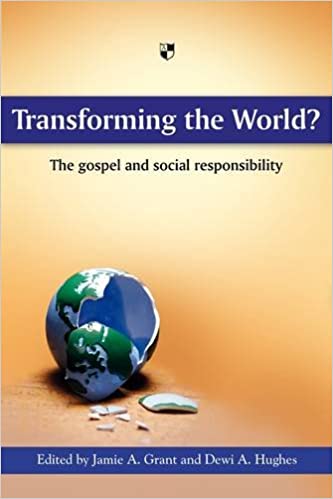The question posed in the title asks not whether evangelicals should seek world transformation, but whether in fact they are doing so.
The editors make clear their conviction that a ‘holistic gospel’ is presented in Scripture. The social gospel advocated by liberals and the exclusively spiritual transformation advocated by some Christians are both rejected; and a more balanced spiritual and social transformation is presented.
The fourteen chapters are biblically rooted, tracing the testimony of Scripture to God’s concern for justice, from the Pentateuch, through the prophets and wisdom literature, and into the New Testament.
Christopher Wright’s chapter is pivotal, as it relates the accounts and interpretations of the exodus, jubilee and crucifixion to show the integral place of social concern in God’s plan of salvation. This chapter drives the book’s call for ‘holistic mission’.
The latter half of the book explores social action in the context of covenant, atonement and eschatology. This selection is rounded out by reflections on the church’s history of social engagement, with John Calvin, John Knox and William Cowper considered, among others. A final chapter deals with business as potentially a powerful agent for eradicating poverty, provided it is brought into line with Christ’s transformative purposes for culture.
The contributors to Transforming the world? write earnestly and engagingly, and with evangelical commitment. There is much interesting discussion as they unfold their vision; for example, on God’s gracious provision for the vulnerable in Israel.
We should be grateful for the challenges they give to idolatrous, contemporary consumerism, and their careful focus on God’s concern for the downtrodden. However, the direct identification of such issues with the gospel seems unhelpful and potentially confusing.
I was grateful for those contributors who pulled the discussion back from the holistic approach to take seriously the danger of becoming too involved with social agendas.
The most convincing piece is Tim Chester’s ‘Eschatology and the transformation of the world’, which maintains the balance of speaking against ‘quietism’, in favour of social involvement tempered by ‘patient endurance’ and faith in ‘a better life ahead’.
Read this volume alongside Don Carson’s Christ and culture revisited to be challenged without becoming uncritical.






